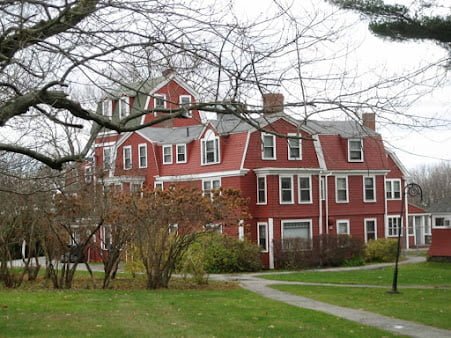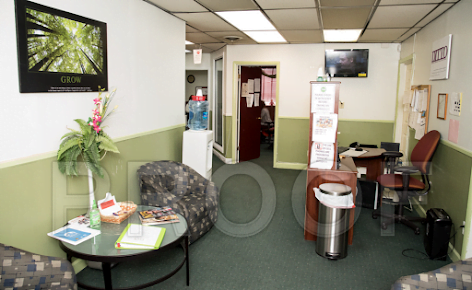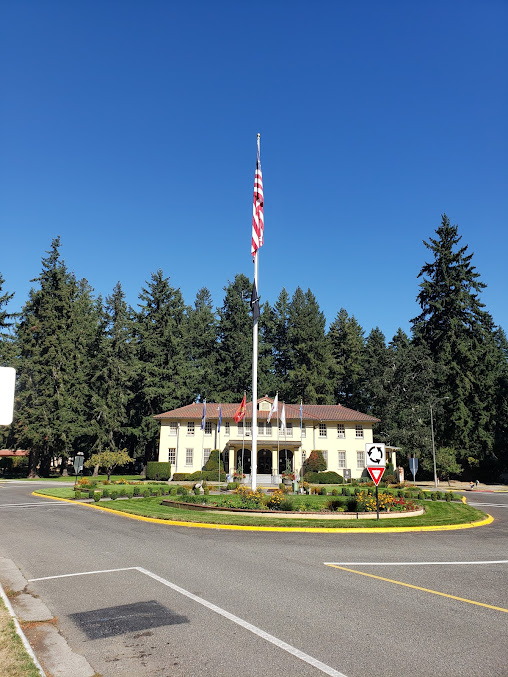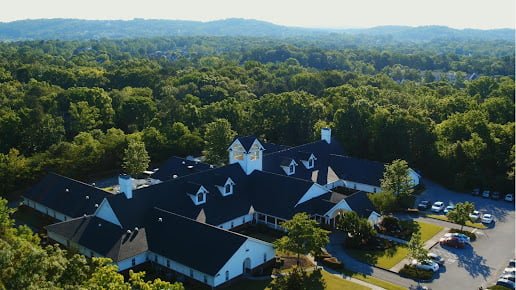Benzodiazepines (benzos) are central nervous system depressants commonly prescribed to alleviate anxiety, insomnia, muscle spasms, and seizures. While the potential for abuse among the general population is relatively low, long-term use of benzos carries a significant risk of dependence and misuse. The 2020 National Survey on Drug Use and Health reported that 1.7% of Americans (equivalent to 4.8 million individuals) had misused prescription benzos within a year. Additionally, 0.4% (approximately 1.2 million people aged 12 and older) experienced problems related to the use of sedatives or tranquillizers.
If you suspect that you or someone you know is struggling with benzodiazepine abuse, it’s important to know that treatment options are available. This informative article aims to provide you with insights into benzodiazepines, the warning signs of abuse and addiction, and where to seek assistance.
Verifying Insurance Coverage for Benzodiazepine Addiction Treatment
Recovering from benzodiazepine abuse and other substance use disorders is possible with the right support. Click here or fill out the form below to explore treatment facilities covered by your insurance. Rest assured that your personal information will be kept confidential.
Understanding Benzodiazepines
Benzodiazepines belong to a class of medications known for their sedative and relaxing effects, which reduce excitatory activity in the central nervous system and induce feelings of calmness and drowsiness. While they can be used to treat seizures or muscle spasms, benzodiazepines are primarily prescribed for panic disorder and generalized anxiety disorder.
Some common prescription benzodiazepines include:
- Clonazepam (e.g., Klonopin)
- Alprazolam (e.g., Xanax)
- Lorazepam (e.g., Ativan)
- Temazepam (e.g., Restoril)
- Diazepam (e.g., Valium)
Teenagers and young adults are more prone to benzo misuse compared to adults, who may consume the substance orally or crush the pills for snorting, seeking a high.
Recognizing the Need for Benzo Addiction Treatment
In the short term, benzodiazepines can effectively alleviate symptoms of anxiety, mood disorders, and panic problems, inducing a sense of calm and drowsiness. However, with repeated use, the body can develop tolerance, requiring higher doses to achieve the same effects.
Prolonged use of benzodiazepines is associated with dependence, wherein discontinuing or significantly reducing usage leads to withdrawal symptoms. Although dependence doesn’t always indicate addiction, it is often present in individuals who use benzos obsessively despite the associated risks.
Studies have shown that benzodiazepine use frequently involves the concurrent use of other drugs, including alcohol and opioids, as well as other medications. This can be attributed to various factors, such as benzos enhancing the euphoric effects of other drugs, mitigating side effects like insomnia caused by stimulant use, and alleviating withdrawal symptoms from other substances.
The combination of benzodiazepines and opioids poses a heightened risk of overdose due to their mutual sedative and respiratory depressant effects. Mixing alcohol and benzodiazepines can have a synergistic impact, significantly impairing one’s ability to stay awake and hydrated while suppressing the central nervous system. A quarter of emergency room visits related to benzodiazepine use and one in every five deaths associated with the drug involve alcohol.
Regardless of how addiction symptoms manifest, ignoring them can exacerbate the situation. Addiction experiences are unique to each individual, and it is crucial to consult a medical professional to determine the best course of action if you suspect benzodiazepine use has resulted in tolerance, dependence, and/or addiction.
Evaluate Your Benzodiazepine Addiction with Our Self-Assessment
To determine the likelihood and severity of benzodiazepine use disorder, take our free 5-minute benzodiazepine addiction self-assessment. The evaluation consists of 11 yes/no questions and does not require any personal information. The results are confidential and provided free of charge.
Disclaimer: Only a medical or clinical professional may diagnose a substance use disorder. This assessment may serve as an indicator of a potential addiction but should not replace a diagnosis from a professional treatment provider.
Treatment Options for Benzodiazepine Addiction
Given the individual nature of addiction, a wide range of treatment options are available to cater to diverse needs. A comprehensive evaluation conducted by a medical professional can help determine the appropriate level of care and the most suitable treatment setting.
Not all patients respond equally well to the same treatment modality. Factors such as the specific benzodiazepine, duration and dosage of use, medical history, and individual needs all influence the treatment plan. Once enrolled in a program, your care should follow a tailored plan to support your recovery goals. Mental health or behavioral therapy is commonly integrated into treatment. The treatment strategy may focus solely on benzodiazepine abuse or address co-occurring conditions, including mental illness or polysubstance abuse (using benzos alongside other substances, such as alcohol).
Various settings and services offer treatment for benzodiazepine addiction. Here are a few examples:
- Detoxification: Medically supervised withdrawal, known as detox, is often recommended for individuals with long-term benzo use. Medical monitoring can help manage the physical and emotional withdrawal symptoms, which can range from a few days to several weeks. Detox can take place in a hospital, clinic, or outpatient facility.
- Inpatient Rehabilitation: Hospitals, clinics, and residential facilities provide inpatient benzodiazepine treatment. The duration of residential treatment can range from one month to a year, depending on the program and individual needs. Inpatient programs commonly incorporate behavioral therapy, which has shown effectiveness in treating substance use disorders and co-occurring mental health conditions. Some rehabilitation centers also offer job placement services, educational opportunities, and secure living arrangements to address the psychological and social consequences of substance abuse.
- Outpatient Treatment: Outpatient benzodiazepine programs are suitable for individuals who prefer to live at home while receiving treatment. Different levels of care are available:
- Partial hospitalization involves three to four months of therapy, typically five days a week for four to eight hours per day.
- Intensive outpatient programs require attendance three to five days a week, with therapy sessions lasting four to six hours per day. The duration of the program can range from two months to one year.
- Standard outpatient programs typically involve once-a-week treatment sessions lasting three hours each.
- Most individuals opting for outpatient therapy demonstrate motivation to actively participate in group and individual sessions, and they have a strong support system at home. Other logistical considerations, such as stable housing and access to transportation, can also contribute to the success of outpatient programs.
- Aftercare: Aftercare, also referred to as continuous care, is an essential component of benzodiazepine addiction treatment. Studies have shown that continuing care enhances long-term recovery outcomes by helping patients maintain and improve the skills and techniques learned during treatment.
Assisting a Loved One in Seeking Benzo Rehabilitation
Acknowledging the need for benzodiazepine addiction treatment can be challenging for some individuals in denial about the extent of their drug use problems. Forcing or coercing a loved one into seeking help may be counterproductive. Instead, setting boundaries and providing support can be more effective. Teachers, healthcare practitioners, parents, and other family members play vital roles in preventing and treating substance use disorders by offering education, support, and outreach to those under their
care.
Finding a Suitable Facility for Benzodiazepine Addiction Treatment
We can connect you with a medical expert who will assess your treatment needs, including benzodiazepine addiction and any co-occurring disorders. Finding the right treatment program can be overwhelming, but our admissions navigators are here to help. Call us or send a text to ensure you have insurance coverage, and we can guide you in choosing the best plan for your needs.

8624 Diamond Oak Way Elk Grove CA 95624

Sixth & Lenora Building 2033 6th Ave 4th Floor Seattle WA 98121

821 N Eutaw St Suite 101 Baltimore MD 21201

255 N 30th St Laramie WY 82072

2176 Central Park Ave Yonkers NY 10710

8733 La Prada Dr Dallas TX 75228

83 Baldpate Rd Georgetown MA 01833

1745 W 7800 S West Jordan UT 84088

6126 E 32nd Pl Tulsa OK 74135

9201 Montgomery Blvd NE ste v Albuquerque NM 87111

325 SW 28th St Fort Lauderdale FL 33315

4804 York Rd Suite 2 Baltimore MD 21212

9600 Veterans Dr SW Tacoma WA 98498

2280 WA-821 Yakima WA 98901

950 S Oyster Bay Rd Hicksville NY 11801

7429 Shallowford Rd Chattanooga TN 37421

5201 White Ln Bakersfield CA 93309

35 Hillside Rd Barryville NY 12719

111 S Potomac St Hagerstown MD 21740

7000-B 7000-B S Center Dr Clearlake CA 95422
Frequently Asked Questions
Benzodiazepine addiction is treatable, but the most effective method varies for each person. Inpatient and outpatient programs offer different durations and treatment structures. Following an individualized treatment plan tailored to your needs is the key to successful recovery.
The duration of treatment depends on the program format. Inpatient benzodiazepine therapy can last from one month to one year, while outpatient programs typically range from two months to one year.
Remember, you can recover. Successful treatment for drug addiction involves personalized care and remaining in treatment for the recommended duration. Relapse is not a failure but rather a step toward recovery. Several therapeutic phases may be necessary before sustained abstinence is achieved. Let us help you start your journey to recovery.
Check to see if your insurance is in-network at any of our Addiction Centers
- We will conduct an immediate verification of the coverage provided by your insurance provider.
- As a result, you may be eligible for treatment at one of our facilities with a discounted rate.
We can help you find the care you need to get clean and stay sober.
View All Facilities


